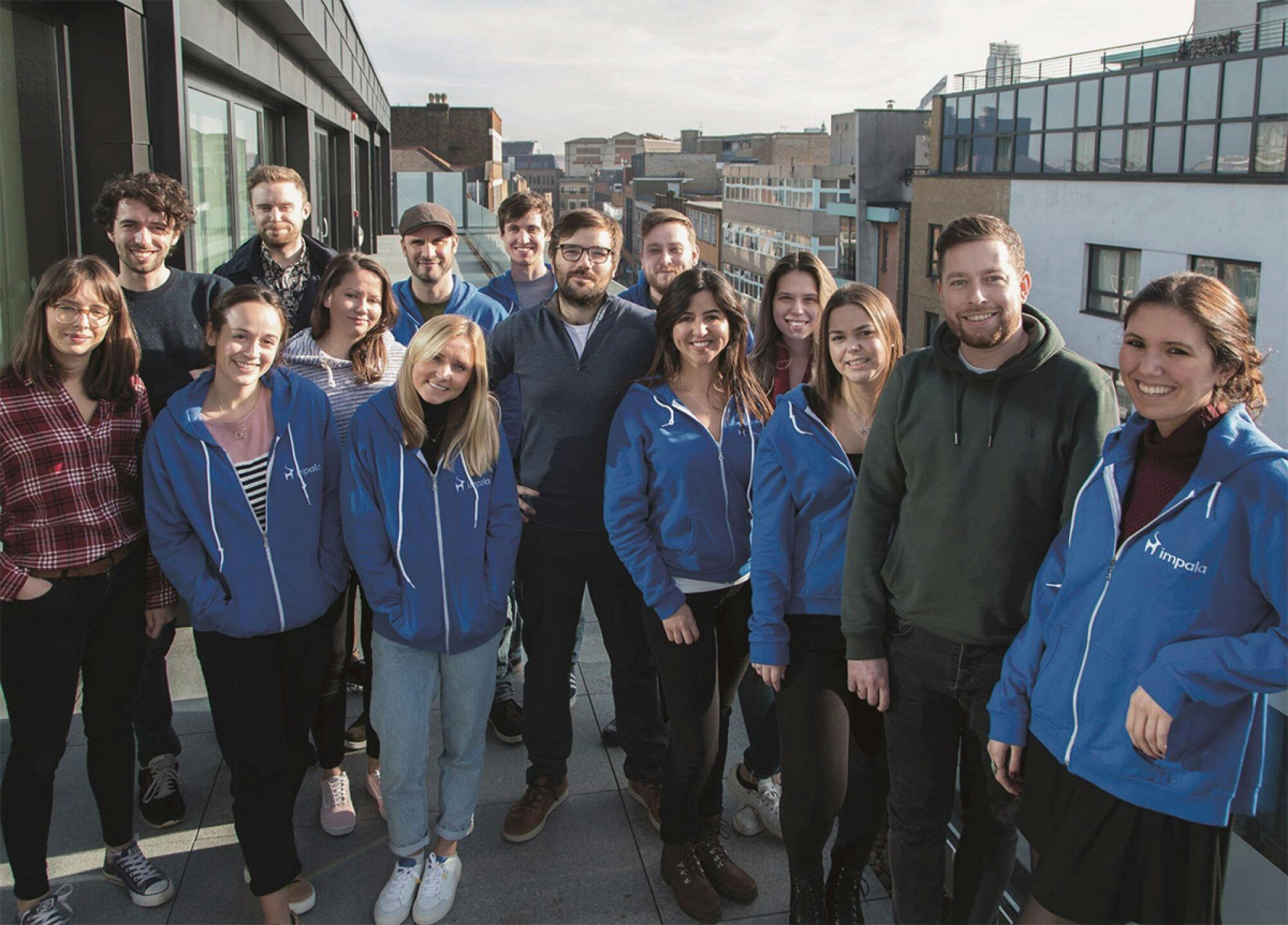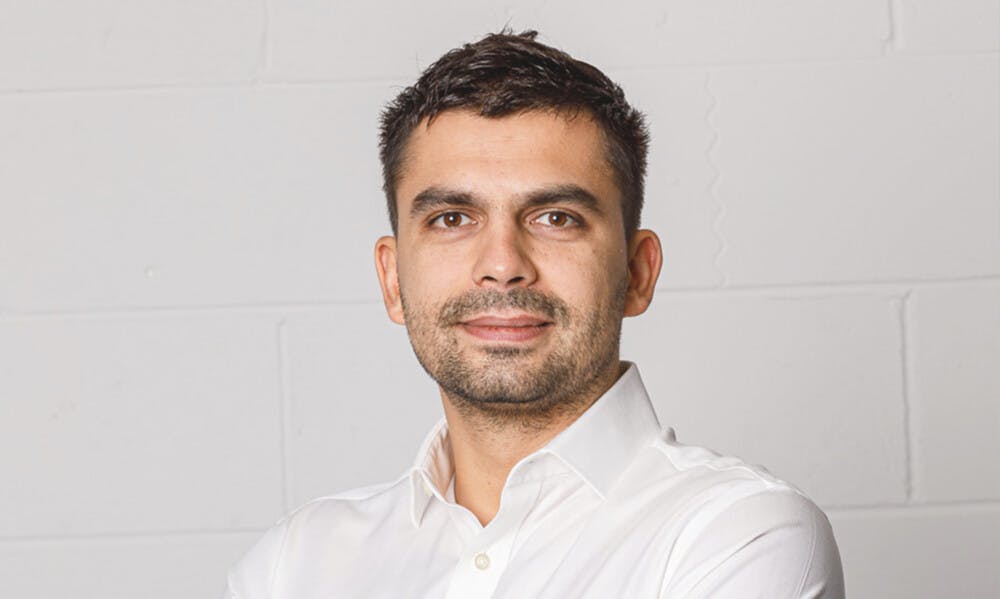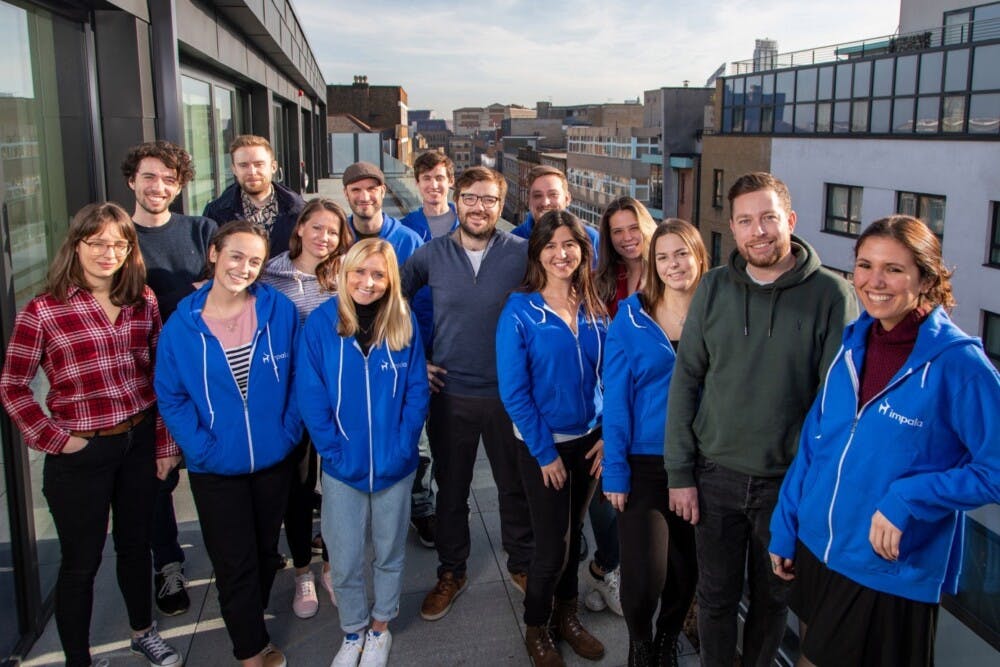Founders' Stories|
Bringing API infrastructure to the hotel industry
The hotel industry is worth around USD1.6 trillion but with close to 250,000 different owners and a large number of services on offer, it is a highly fragmented market. This means that creating the technology to allow customers to book rooms, meals and other services from a hotel’s website can result in a cumbersome and expensive management system. Hoteliers may find themselves dependent on platforms such as Booking.com and Expedia to handle their property management transactions – and paying large commissions for the service.
BEN STEPHENSON, CO-FOUNDER & CEO, IMPALA
Other industries avoid such costs because they are less fragmented – there are only a few hundred airlines, for example. So there is considerable interest among hoteliers in a London-based start-up which is creating a common hotel infrastructure that will open up hotel data to the fragmented market. Impala aims to give a wide variety of travel customers direct access to information about hotels, with the additional benefit of offering them more personalised booking options.
Ben Stephenson, co-founder of the start-up, says that he first became aware of the fragmentation problem when he was head of engineering for a luxury travel company in London which worked with 3,000 hotels. Customers would ring up and say they were travelling to the US next week and asking whether there were rooms available in New York. The company would phone all its partner hotels there, ask them about the availability of their accommodation and send their answers back to the customer. However the delay would often have led the customer to make their own arrangements with reservations on hotel booking platforms such as Booking.com or Expedia which were much quicker to respond.
This was frustrating for the travel company which wanted to digitise its business by creating its own app and website that customers could use to book accommodation for themselves. But with 3,000 hotels, there were 3,000 different sets of booking data and it would take months or even years to incorporate them all onto a booking platform. So Ben Stephenson founded Impala to create a common hotel infrastructure that could connect customers directly to different booking systems – effectively allowing travel firms to build their own versions of Booking.com or Expedia.
Many industries already have such Application Programming Interfaces (APIs), including Twilio, a multi-million dollar telco infrastructure provider. ‘Impala is following that kind of trend in the hotel industry,’ says Ben Stephenson. As service industries evolve, lots of varieties of infrastructure emerge for their businesses and they then try to create a common infrastructure that can enable communication between them. Impala is doing the same, and by offering a solution to a big problem facing hotel managers has quickly become well-known in the industry.
Just like the trend towards open banking, the hospitality industry needs to devise solutions that are smart, responsive and can talk to the world outside. By democratising access to hotel data, Impala will fundamentally change the way people book hotels and also the ancillary services offered by the places where they stay.
By democratising access to hotel data, Impala will fundamentally change the way people book hotels and also the ancillary services offered by the places where they stay
‘But we do not ask hotels to switch from their old-school property management systems to an entirely new system: we upgrade their existing systems to modernise the infrastructure which sits on top of the old system. Rather than paying the commissions of up to 25 per cent charged by booking platforms, Impala will charge something closer to credit card processing fees of around 3 per cent. An added benefit is that it can create opportunities for hotel customers to personalise their bookings,’ says Ben Stephenson.
The company currently employs 43 people, half in London with the others located around Western Europe. From the start, Impala believed that it did not make sense for all the staff to be based in London, and operates a remote-first policy in the belief that hiring people elsewhere and allowing them to meet potential overseas customers face-to-face would be more productive. It also pays for attractive staff benefits such as generous holiday pay and personal budgets to furnish their remote working accommodation. And when staff move to a new city, they can fly family members in to see it, which is more effective in motivating them.
Ben Stephenson started young in tech, building computers in his bedroom at the age of eight, teaching himself coding and programming and playing online games. At university he switched to studying French and Italian, but after eight weeks badly injured his knee playing sports and moved back home to Middlesborough in the north of England. ‘Returning to programming, I set up a small web design agency in 2008 and renewed my interest in technology. But the onset of the banking crisis made it a terrible time to be freelance, so I moved to London and started working for the luxury travel company. And in 2017 I founded Impala with Charlie Cowley whom I had met through a friend and whose sales skills complemented my tech expertise.’
Having started with funding by friends and family, the two co-founders raised a Seed round of USD2 million in April 2018, followed in autumn 2019 by Series A funding of USD11 million. Just a few months later in February 2020, Lakestar led a Series B funding for Impala of USD20 million which was supported by Latitude Ventures, a London-based venture capital fund which had invested in the Series A round. The speed of fundraising reflected Impala’s attractions for hotel owners: it already had more than 300 customers from six continents signed up and an additional 3,500 hotels on the waitlist.

Ben Stephenson (center) and the Impala team
Lakestar was an attractive partner for Ben Stephenson, who had spent a number of months sounding out Christoph Schuh, a partner at the firm who managed a series of investments that it had made in the travel market. ‘He had a deep understanding of the industry and was convinced that Impala had the potential to become an important player in the future of travel. After all, it is a USD1.6 trillion industry and Impala’s common infrastructure system could earn 2–6 per cent of that, creating a very profitable business.
‘For my part, I wanted to work with a European fund because I believed that Europe was a very good place to build a broad travel company. And I saw an opportunity to learn from the excellent European network that Christoph had established.‘
Are there any worries that keep Ben Stephenson awake at night? ‘Start-up founders normally have two preoccupations,’ he says. ‘The first is whether we have enough money in the bank to succeed – and we know that we do. The second is whether we can build the right executive leadership team to make the company succeed. As we scale up from 40 people to 400, 4,000 and 40,000, I devote 95 per cent of my days to ensure that we are hiring the right executive team. That’s a pretty stock answer but it has the benefit of being very true!’
Has the COVID pandemic disrupted his plans? ‘A global pandemic is not a positive thing,’ he replies, ‘but building infrastructure in an industry needs a big catalyst for change and for better or worse COVID-19 provides it. Some businesses will go bust and have to be replaced, and others will have to cut staff really deeply until markets recover. But COVID is a significant catalyst and we are seeing that now with Impala.’
This article is part of the Lakestar Briefing, a periodical publication about Lakestar's portfolio companies and our network of inspiring minds we like to work with.
Click here to subscribe










